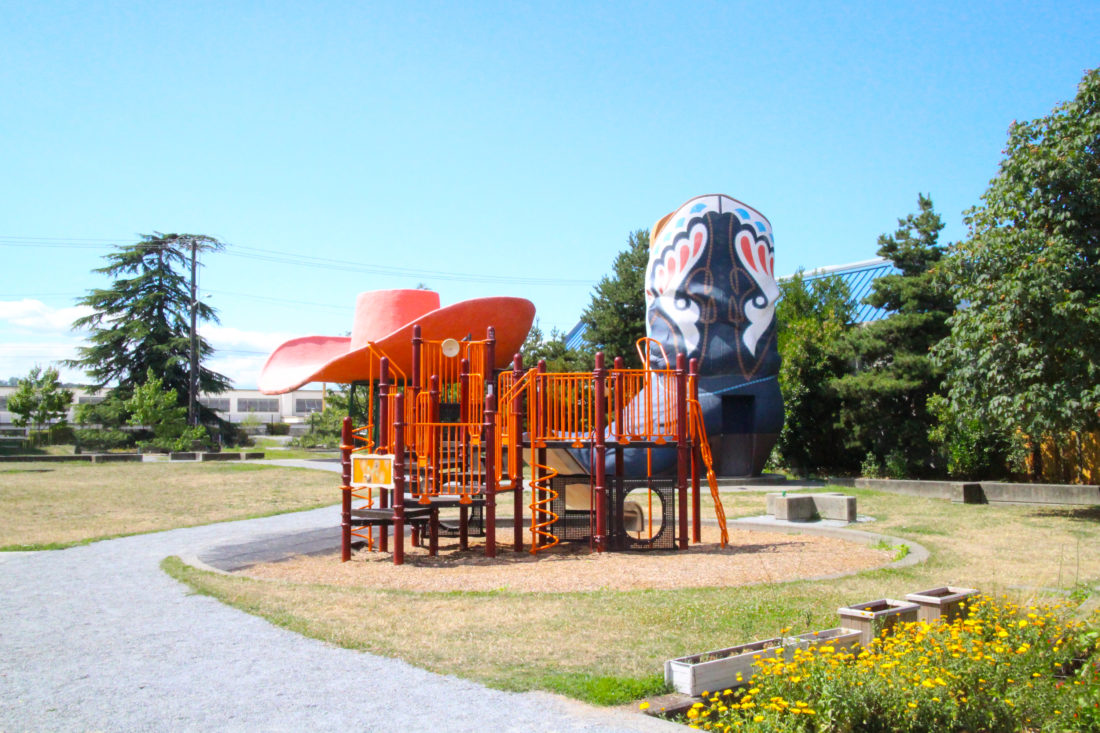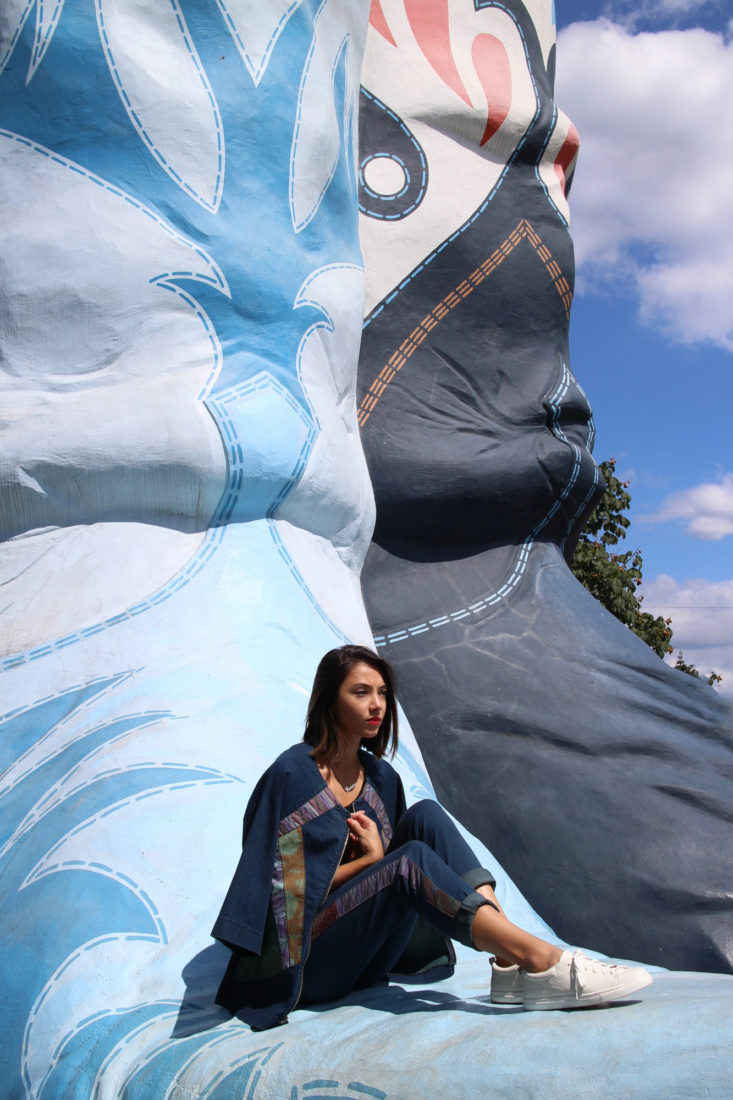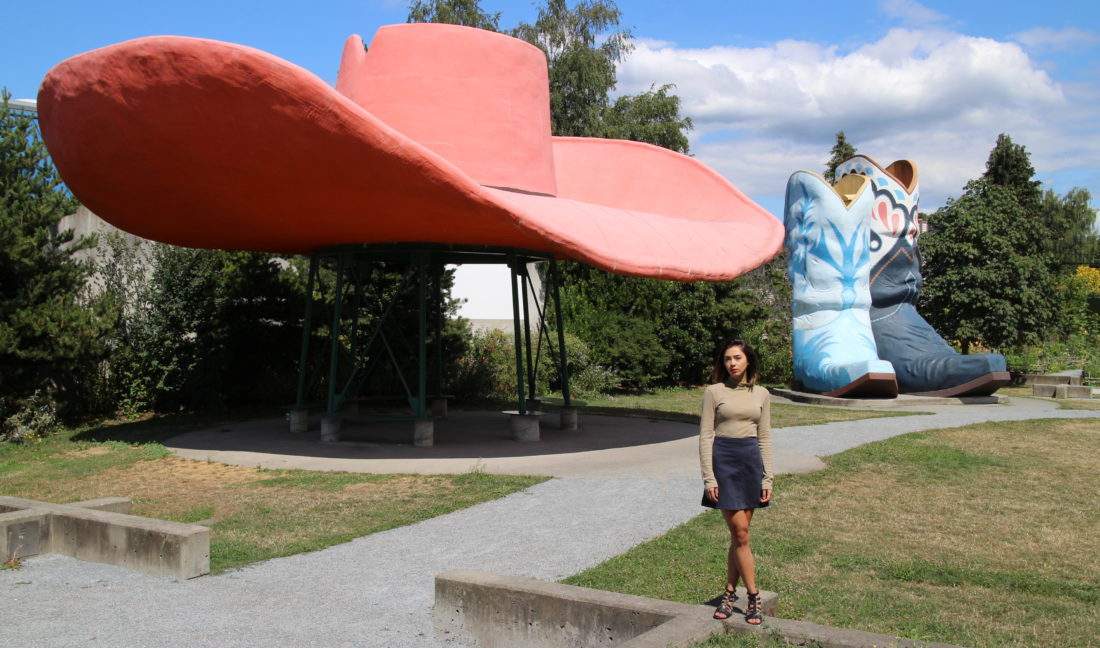
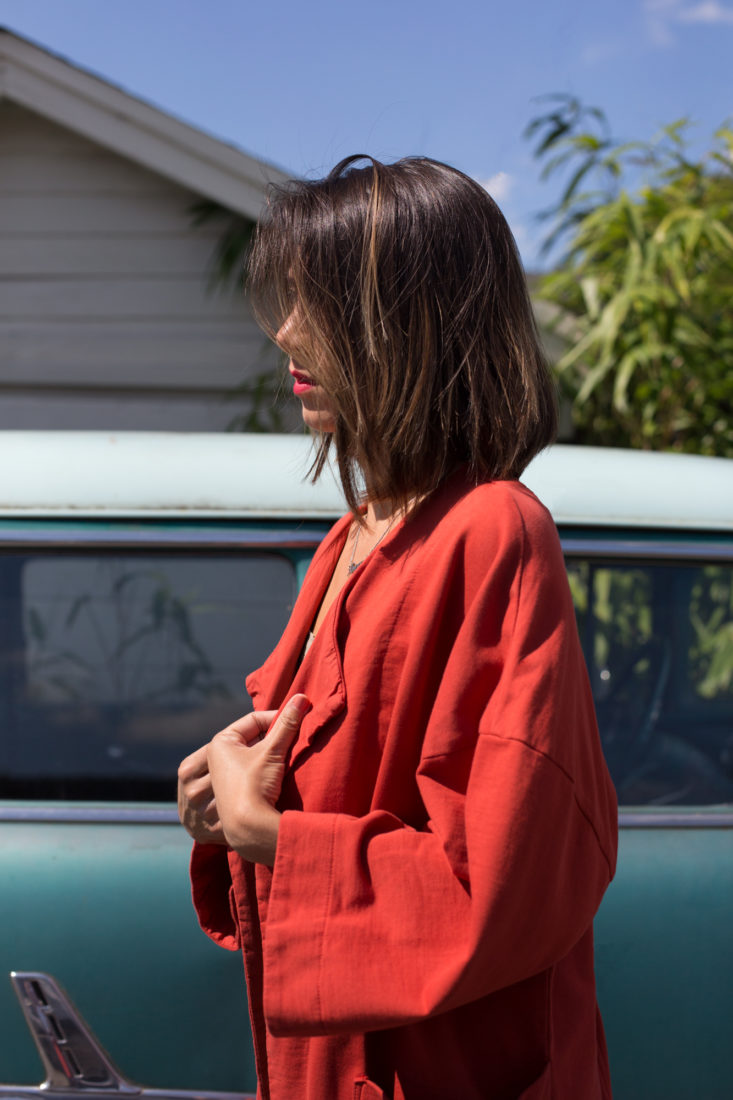
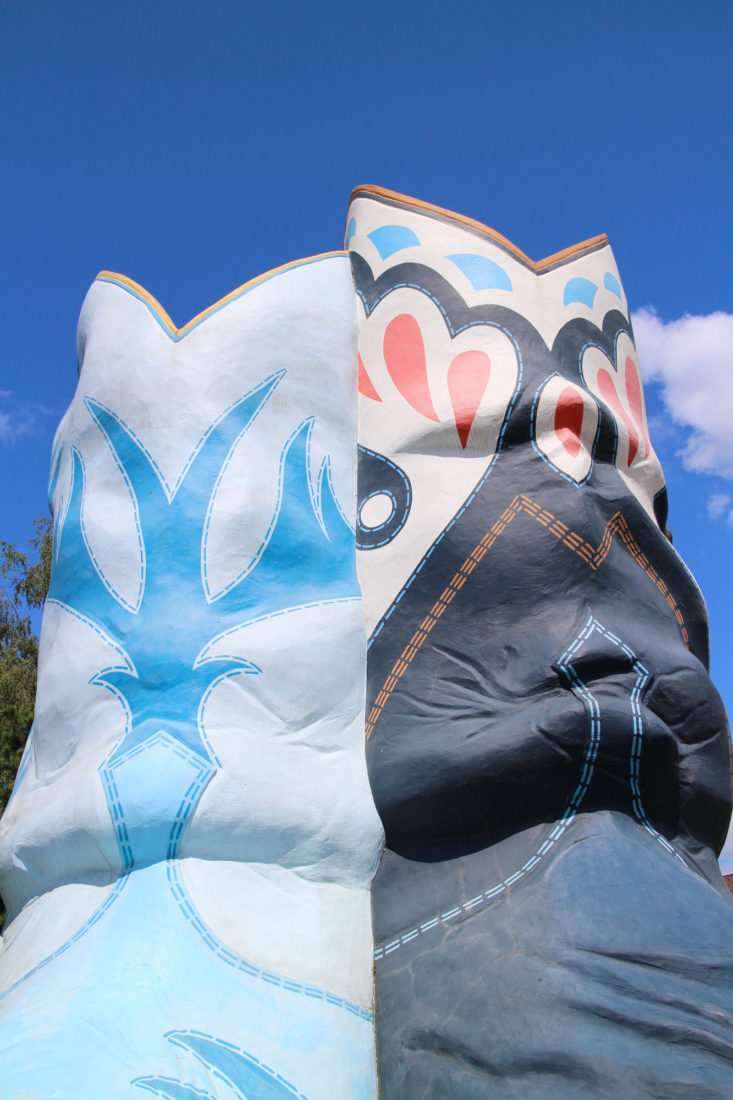
Q: Who are your most important influences creatively?
My influences are vast… I am shaped by authors and poets like Ntozake Shange, Sharon Olds, Haruki Murakami, James Baldwin, Franz Fanon… literature has always been my first love. As a songwriter, I am a student of Stevie Wonder, Joni Mitchell, Lauryn Hill, Mos Def, Fiona Apple… I’m incredibly influenced and inspired by my brilliant friends, from Chicago writer and singer Jamila Woods to Seattle artist and curator Davida Ingram to the designer and fine artist Mark Mitchell, and beyond… like thirty names come to mind! Sonically, my rotation right now has been Anderson .Paak, The Internet, Blood Orange, and Rihanna’s Anti.
Q: How would you describe your aesthetic / style?
Simple, convivial, sometimes sassy and other times inching towards elegance… and most resoundingly, crowdsourced! (Thanks Prairie Underground for the excellent stage and travel pieces)
Q: What was your introduction to spoken word and slam poetry?
I was a sophomore in high school, fighting through the inevitable awkwardness and growing pains, channeling my creativity through choir and musical theater but always feeling like I was bumping up against a wall rather than unlocking my true self-expression. My friend George Watsky invited me to see him perform at the Youth Speaks Grand Slam at the Opera House in San Francisco; it was my first spoken word event, and it was an epiphany for me. Watching twelve remarkably confident teenagers deliver lyrics about their experiences, fears, traumas and declarations to a crowd of thousands was electrifying; it made me think, “Can I write my own script?” It gave me a new paradigm of artistic ambition: not to win the lead part or get the soprano solo, but to author and fashion my own identity and present that to the world instead.
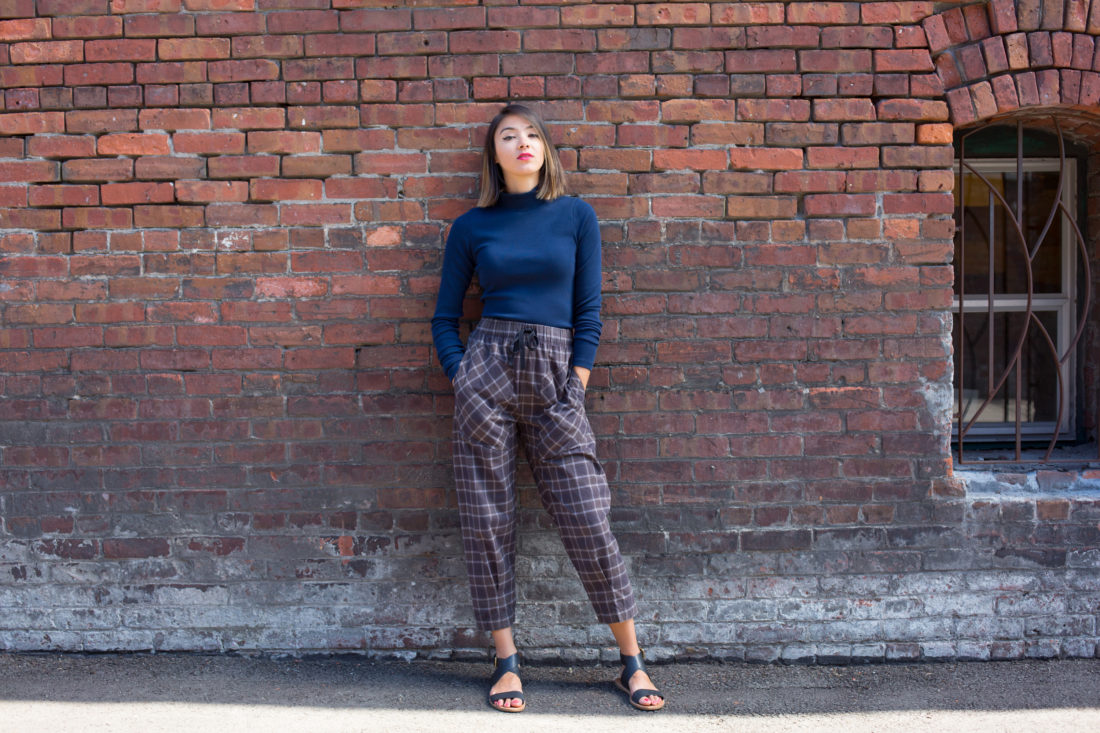
“It gave me a new paradigm of artistic ambition: not to win the lead part or get the soprano solo, but to author and fashion my own identity and present that to the world instead.”
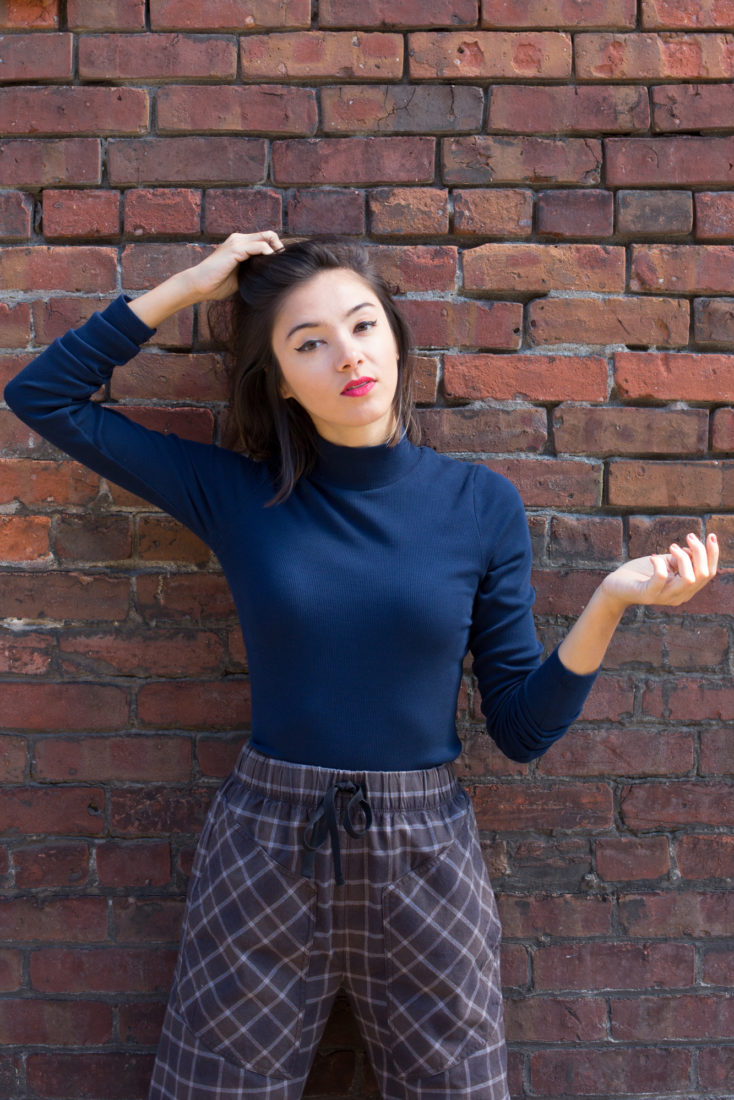
Q: Tell us about your band The Flavr Blue and your other musical projects
The Flavr Blue is an electronic R&B trio from Seattle: myself, and my bandmates Parker and Lace. In the last four years, we’ve gone from three friends in the studio to working musicians in constant collaboration, allowing the project to be the petri dish where we try all of our wild ideas and cultivate our genuine feels. We’ve also learned so much about live performance and touring, across the country and even abroad, and are entering into our next album project more focused than ever. We’re excited to craft a full-length that brings people joy and is the soundtrack to the perfect turn up.
Q: You are an artist, activist and poet/speaker, can you share with us how all of these mediums inform one another?
As an artist, I don’t believe in the idea of “art for art’s sake” – I feel that anyone who is a generative artist creates with an inherent politic; the question is whether one can create conscientiously, and own the opportunity to shift culture in a more just direction. And as an activist, I know that imagination is a fundamental tool of the work of community organizing; in order to envision a more just world for ourselves, it takes a radical break to conceive of new alternatives, modes and systems that don’t just fix a “broken” system but abandon it entirely. Art is also cathartic, and deeply human, and can connect us with ourselves when it is easier to be disconnected and insulated from a pretty dismal landscape at home and in the world at large. It is the conduit to our humanity, and is our legacy.
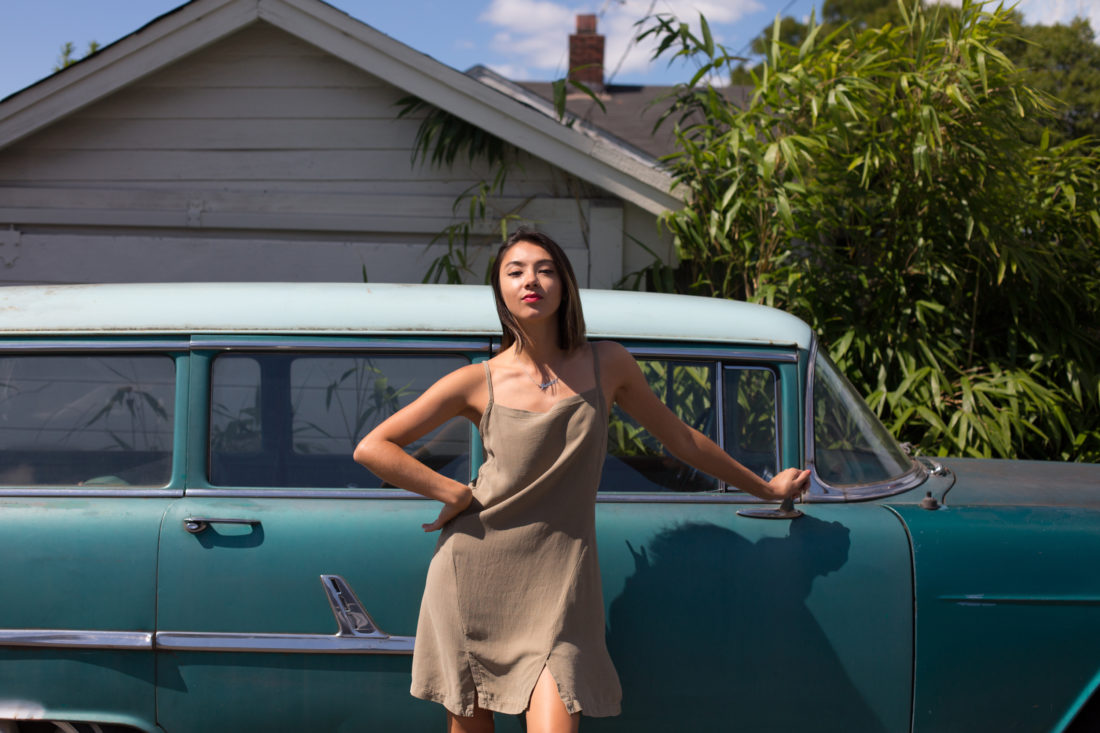
“As an artist, I don’t believe in the idea of “art for art’s sake” – I feel that anyone who is a generative artist creates with an inherent politic; the question is whether one can create conscientiously, and own the opportunity to shift culture in a more just direction.”
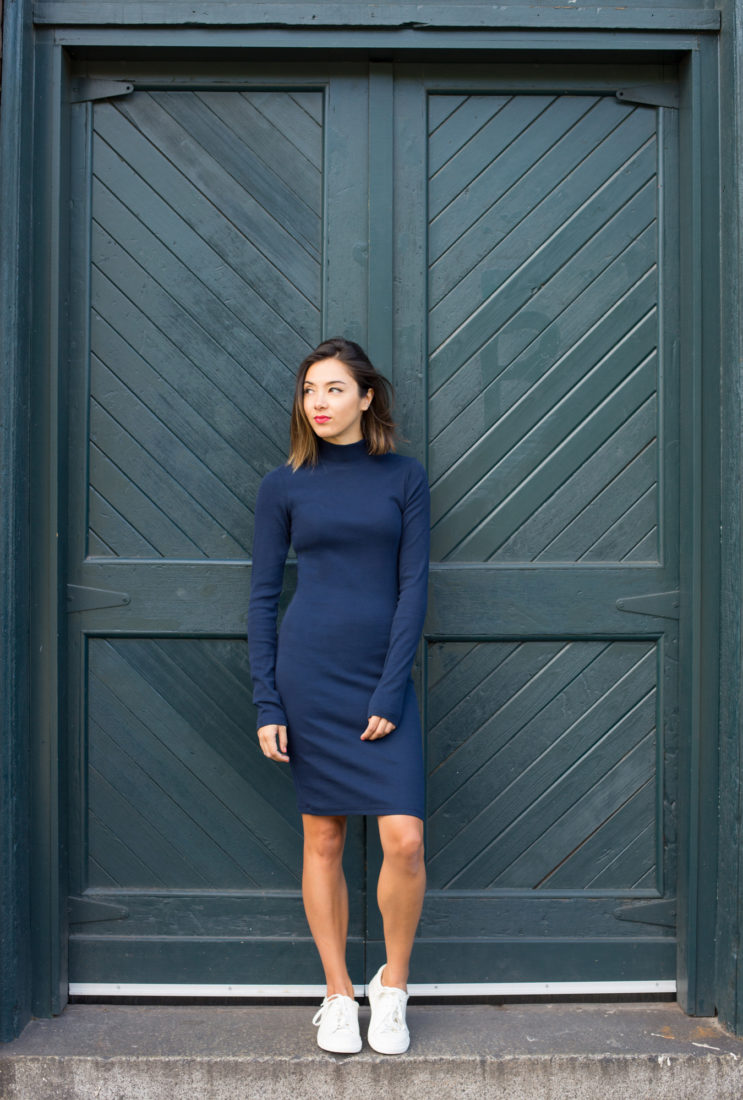
Q: What do you see needed in the future of music and would like to see more of?
I am thrilled to be a musician as it becomes more possibly and viable to be independent. I think it’s very important for musicians to be well-versed and knowledgeable about the music industry and protect themselves and their assets; to own and be affirmed that the music is the reason and the foundation, and isn’t just incidental to success.
I just saw Blood Orange perform his album Freetown Sound live in Los Angeles and his show was a revelation; I’m still processing it. It was immaculately choreographed, deeply emotional, unhurried yet demanding full attention. It had this modernist Alvin Ailey movement; he created his own world on stage where he can dance, sing, play anything from a cello to the keys to electric guitar, and be centered in a world that would have him silent on the margins otherwise. I thought, “This is what liberation looks like.” He is consummate and gracious and wildly musical. I’d like to see more creators with his scope, ambition, and integrity.
Q: What was a significant part of your upbringing that still feels relevant today?
My mother, who is from Hong Kong, owned two Chinese restaurants while we were growing up. I think the hustle of being in the service industry still very much resonates with how I approach my work… I remember my mom telling me, “There’s no excuse to do nothing. There’s always something to do.” Back then, it was folding cloth napkins and cleaning chopsticks, and now it’s writing, connecting, collaborating, and sharpening my creative skill set.
